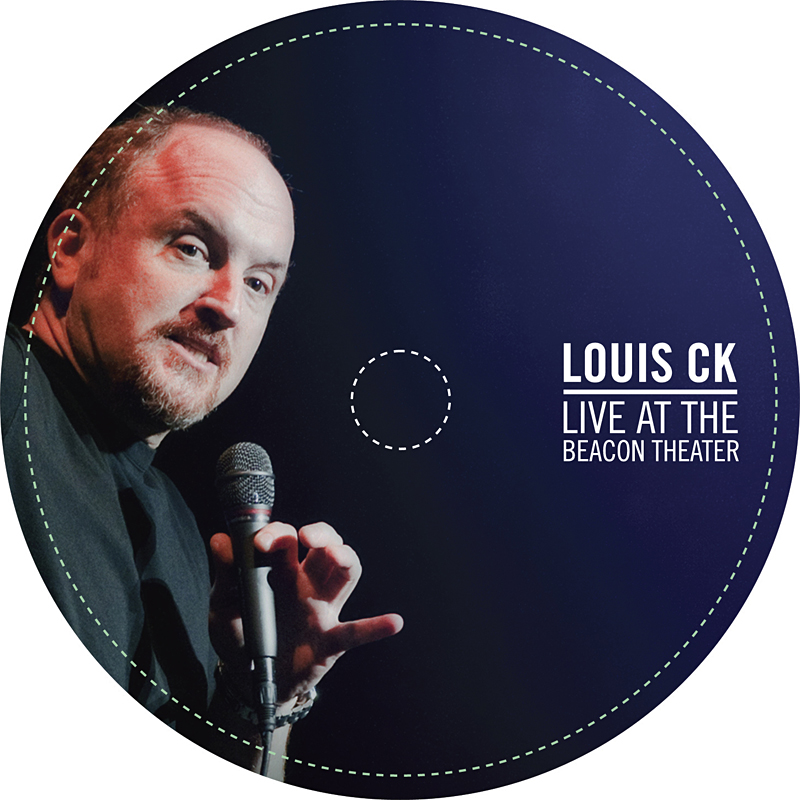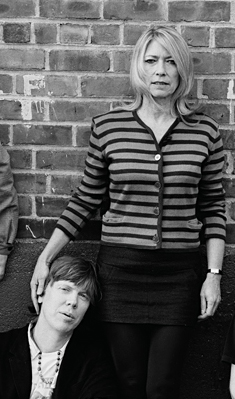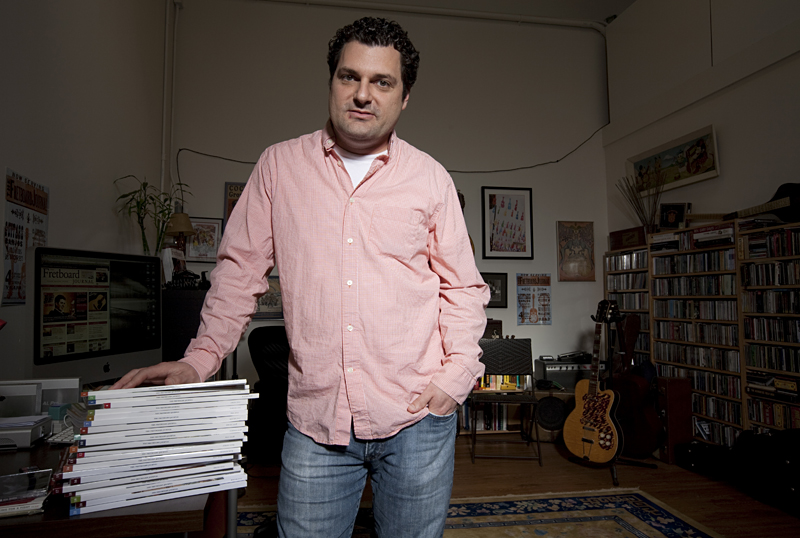Allen Stone is a bespectacled white boy from around these parts—Chewelah, Wash., where his pappy was a preacher, to be exact. He wears a natty Cobain cardigan over a Sonics jersey, and has curly blonde hair and a gap-toothed grin. And the falsetto-driven soul music he sings is making him a rising figure in this latest retro-soul blip. His self-titled sophomore effort (released October 4) peaked at #2 on iTunes’ R&B/Soul chart and has garnered praise from USA Today and NPR. He even played on Conan. Of course, we could examine the sociopolitical mumbo-jumbo of an odd-looking white kid seated in the colored section and reaping all the rewards, but that topic has been bludgeoned nearly to death (Elvis, Beasties, Eminem, etc.) The real question we should be asking: Is Allen Stone’s music any good?
Seattleites seem to think so. His two Neptune shows this weekend have sold out. And his publicity hounds boast of him as the heir apparent to Stevie Wonder and Marvin Gaye—probably because it’d be less hip to say he sounds like Hall & Oates on “Rich Girl” or Billy Joel singing “Tell Her About It,” which he really does. Regardless, Stone’s sound is pure yesterday’s soul, emulated quite well by a backing band comprising Raphael Saadiq’s players as well as Darren Johnson, who played keys for Miles Davis. Given that army, it’s no wonder listeners are so easily sucked into his vibe—in this era of super-sheen, his band creates the auditory equivalent of an old Polaroid, full of Hammond B3 whirls and funky guitars reverberating through vintage tube amps.
But Stone’s lyrics make it clear he’s rooted firmly in the present. On album opener “Celebrate Tonight,” he sings “Everybody’s feeling the strain of a 9-to-5” before urging listeners to “leave all your deadlines behind” and join him in being fully present with his music. A teacher through and through, Stone’s lyrics are loaded with rebukes of our society’s drive for upward mobility and obsession with constant busyness: “Whatever keeps you occupied/Whatever gives you a contact high/ . . . will never make you satisfied,” he sings on “Contact High.”
But Stone’s thin falsetto doesn’t pack the punch necessary to pull off lines like this. For the most part, his pleas for self-reflection are more Oprah than Stevie—most obvious in “Nothing to Prove,” where he urges listeners to “Get your act together/It’s really all up to you/Life is always better when you have nothing to prove.”
What Stone lacks is grit. In The New York Times recently, he was quoted in concert saying he’s “sick and tired of soul music looking so crisp and clean and proper! Because my soul—I said my soul!—is just a little bit greasy.” And perhaps that’s his problem— he only appears down-and-dirty. Whereas Sharon Jones takes the stage looking as fancy as Liz Taylor on the red carpet, then bares her sweaty, greasy soul for all, the greasiest thing about Stone is probably his hair.
Stone’s dirty little secret is that he’s got everything it takes to get noticed in the Internet era. What he has going for him is that he’s not trying to breathe new life into the soul genre (Janelle Monáe’s got that covered); the downside is that the freshest thing he brings is his looks. Intentionally or not, his unstudied attire and un-plastic face make him stand out from the cosmetic masses. He seems real, which is more than you can say for most everyone else on the music charts. He’s a publicist’s dream come true—forget the music, the dude sells himself on curb appeal alone!
But that’s the problem. Though Stone’s songs, like Adele’s, sound human and warm—a sound you don’t hear regularly these days—it’s hard to imagine anyone listening to them long-term. They just don’t offer much to chew on. Twenty years down the road, when people want to listen to soul-music excellence, they’ll reach for Talking Book and Lean on Me . . . just as they always have.








